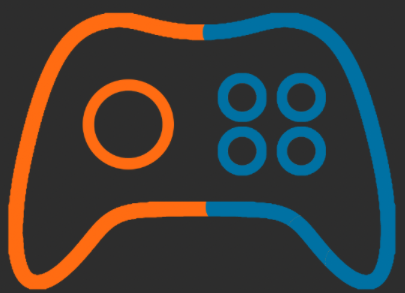We spoke to Dr Lauren Dillard, who is part of a team funded by the WHO to research the suspected correlation between hearing loss and modern gaming practices.
Despite the plausibility of the latter, the team aim to produce tangible results which can be used to improve the likelihood of gamers developing audiological issues later in life.
The ever-evolving and advancing technology of gaming often comes with a hidden risk: exposure-induced hearing loss.
We look to environments such as bars and clubs when we think of environments that could lead to such life-changing symptoms, but damage can be caused from the comfort of our bedrooms.
In recent years, preventative measures related to hearing loss have become the norm, with innovations such as customised earplugs paving the way for healthy listening habits.
Apple devices also offer sound level checks for users and advise when you may be causing damage to your hearing. But what about gaming headsets?
Dr Lauren Dillard is a consultant at the World Health Organisation and a professor at the Medical University of South Carolina. Dr Dillard is a clinical audiologist and hearing researcher.

Dr Dillard conducted a study with BMJ Journals and the World Health Organization that has investigated sound-induced hearing loss from exposure to video gaming.
The study investigated video gaming as a potential risk to cause hearing loss due to the unsafe listening habits of the gamers themselves.
It concluded that evidence suggested gaming as a common source of ‘unsafe listening’. It suggested interventions should include creating and improving policies that encourage safe listening practices in the gaming community.
The study included 54,000 participants and it has been noted that gamers self-reported much higher occurrences of hearing loss and hearing loss symptoms such as tinnitus- however, the team also did indicate a much broader study should be conducted.
Average sound levels measured in video games nearly always exceed permissible exposure limits and gamers often listen at these levels for times much exceeding those recommended, Dillard explained
“Permissible sound exposure levels are based on the loudness of the sound and the duration of the exposure. The permissible exposure time of an 80 dB sound is 40 hours, but the acceptable time of exposure to a 98 dB sound is only 38 minutes”.
Dillard explained that the type of game you play could make you more prone to hearing loss: “Games that have more high intensity ‘impulse-type’ sounds such as blasts, gunshots, and similar sounds are more likely to be harmful’.
These sorts of noises can often be at a dB level even louder than the background noise of the game itself and also often are turned up at a much louder level than suggested WHO limits.
Adults are recommended that it is ‘permissible’ to be exposed to 83 dB of sound for up to 20 hours per week.
For children, the WHO recommends levels no higher than 75 dB for 40 hours per week, which should concern parents. According to the study, 24% of gamers are under 18 and most are probably unaware of the damage they are causing themselves and the implications of irreversible hearing damage.
Dangerous exposure to loud noise can lead to tinnitus, an incurable symptom which makes it feel as if there is a constant sound in the sufferer’s ears. It can be a constant sensation or be intermittent, however, can change your quality of life and even lead to mental health issues as it can overwhelm the sufferer.
So, if gaming itself and our game of choice can cause us hearing loss and lead to tinnitus- what can be done to decrease the risk?
Dr Dillard and the World Health Organisation have a few guidelines they advise gamers to stick to: “A simple rule of thumb is the 60/60 rule: keep the volume below 60% and don’t listen for more than 60 minutes at a time. Take short breaks away from games that include impulse sounds and limit daily gaming time”.
Other tips include volume reduction of games when you are not actively participating as well as reducing ringing and buzzing noises, as they are proven to induce tinnitus.
It is also suggested gamers are mindful of other loud noises they are exposed to every day such as workplace sound and music as this combined with gaming will only increase the risk of a long-term hearing problem.
The study also outlined a gamer’s next step if their hearing becomes a concern. Early signs of hearing loss include tinnitus, a ringing in the ears, difficulty listening to high-pitched sounds or partaking in loud conversation.
It is advised to use gaming consoles and devices that have sound monitoring technology so you can prevent any potential hearing loss and become aware of the sound levels and length of exposure that are dangerous.
The WHO suggest gamers keep alert of these signs and contact a doctor if they feel their hearing has been affected by sound exposure.
Dillard said, “Check your hearing. There are validated apps, including hearWHO that can help you do this if you do not have access to a hearing professional”.
While Dr Dillard could not comment on specific gaming brands or headsets that she would recommend to gamers, she did comment that the WHO is collaborating with the
International Telecommunications Union (ITU) to set global standards for safe listening in gaming.
Dr Dillard and her team are the first to study the link between gaming habits and hearing loss meaning there is still a lot to learn about the long-term effects of unsafe sound levels of gaming headsets.
The message from Dr Dillard and the study is clear; gamers should become more mindful of their auditory health and take extra steps to prevent damage to their health down the line.
Small steps as simple as taking 5-minute breaks from gaming or readjusting the volume can save you from irreversible problems later in life.
We hope gaming developers can react to the need for technologies that can make protecting your hearing easy and accessible and give people the opportunity of a safer listening experience without giving up the hobby they love.






